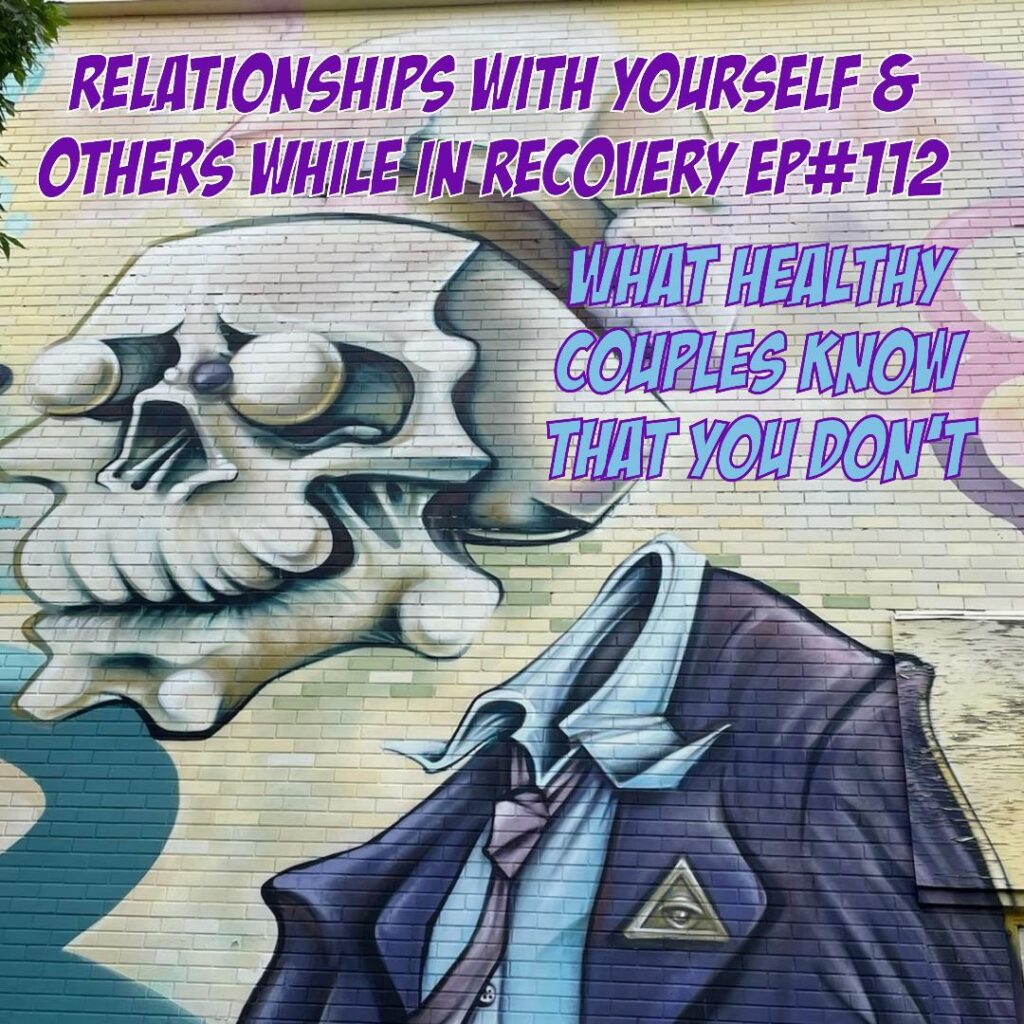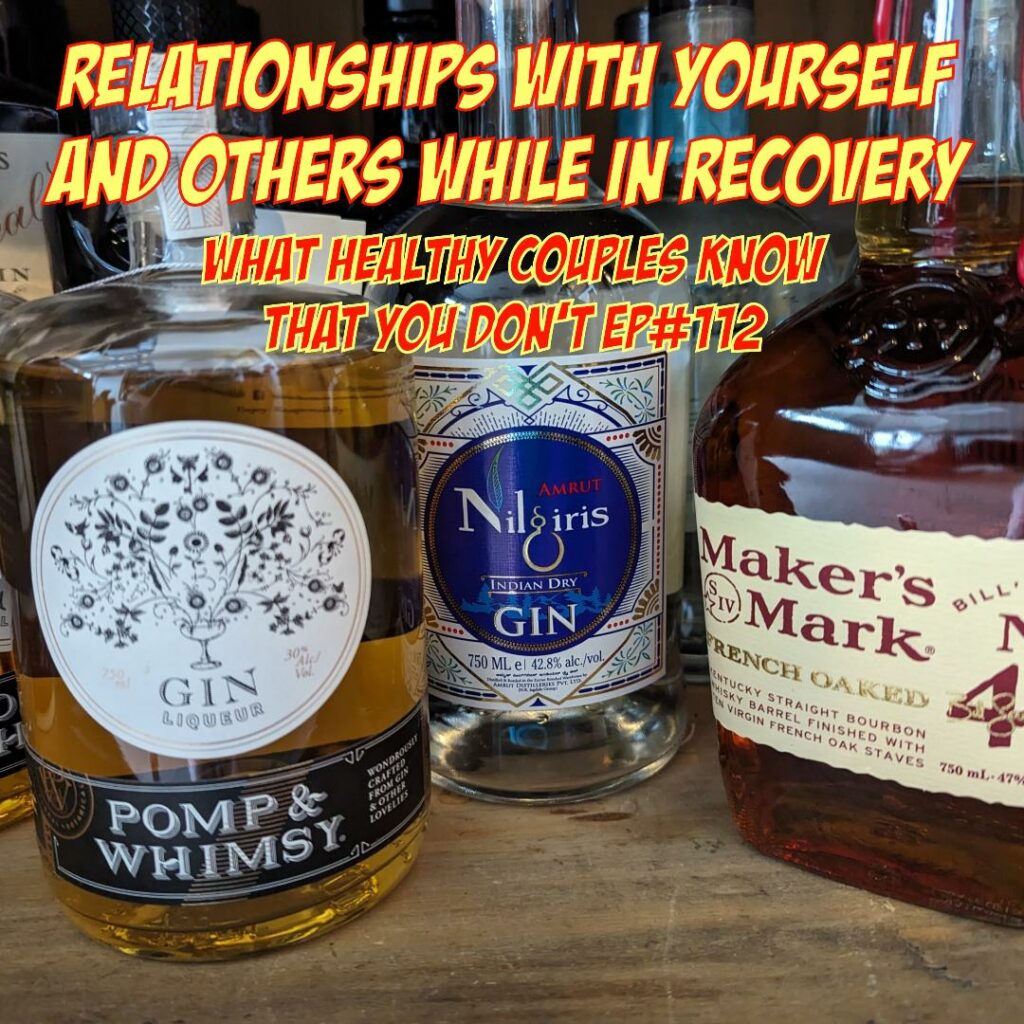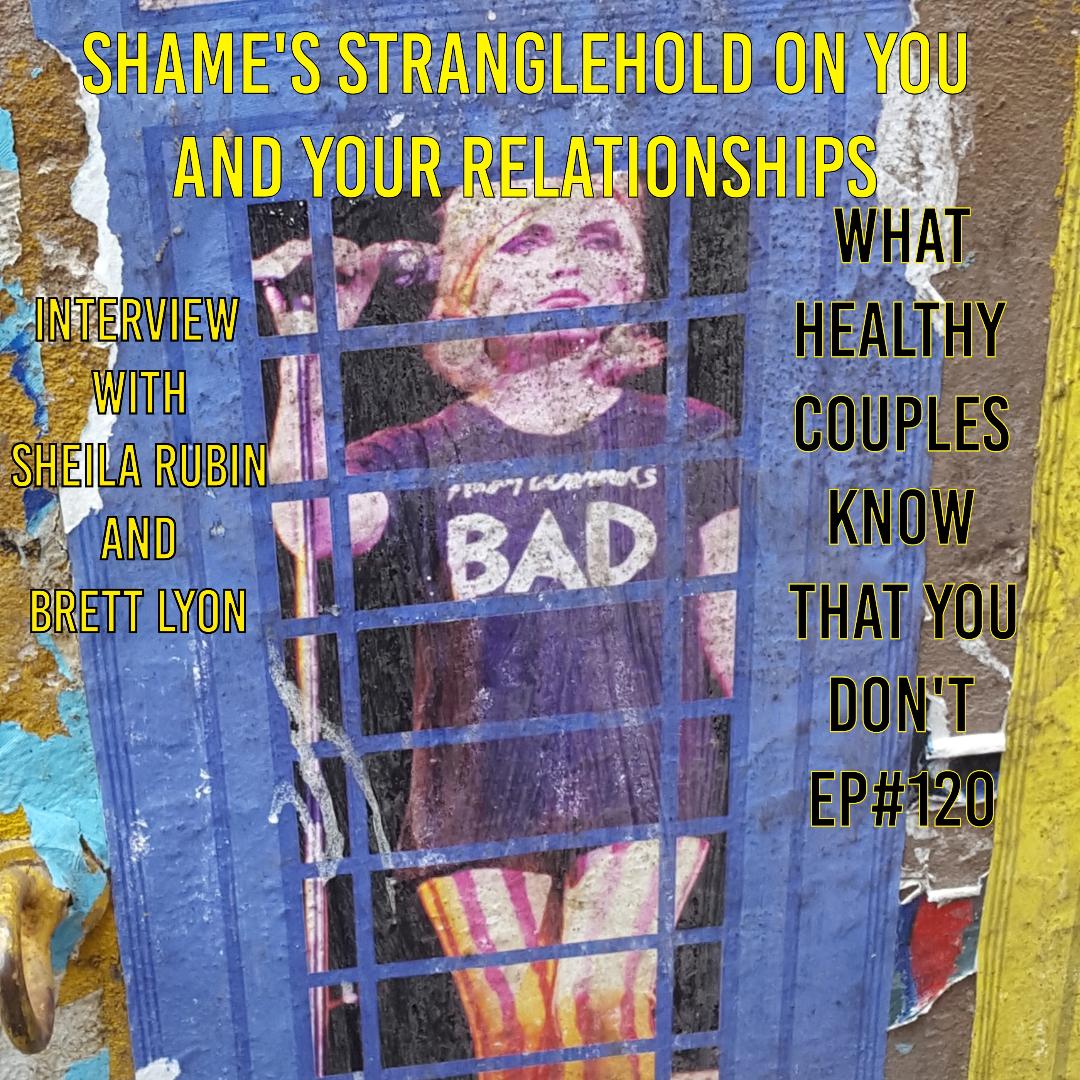
Recovery can be very difficult because of shame. Shame is an obstacle to healing for everybody. How do you face hard truths about your own dark side without drowning in the shame? Learn how to balance the footprint of shame that stomps on your soul. The only way to continue to respect that your partner’s generosity is used up is to recognize that actions speak louder than words. The work of recovery is totally worth it!
Welcome to Keeping it Real with Rhoda. I just agreed to take on a new couple because the wife said the magic words “just 2 or 3 sessions”. I know how arduous the path of recovery can be….it is a slow & painful process so I agreed. It reminded me of so many important lessons I decided to do this episode. I drove 45 minutes each way to Bridgeville for almost 2 years to work for Alternatives because I believed as I started private practice I needed more depth in my understanding of addictions. That was one moment of smarts on my part.
I saw a powerful play in London some years ago maybe 2015, that really captures the painful journey of recovery from addictions and its insidiousness. The doctor in the play tells Emma in recovery “Your addiction will fight any progress. It’s a parasite and it will fight for its own survival until you are dead.” It makes several crucial points that all revolve around this theme: Rehab can only begin by fiercely facing hard truths. I’m going to repeat that because it’s so important: Rehab can only begin by fiercely facing hard truths.
So now let’s talk about the trickiness of shame as an obstacle to healing for everybody. How do you face hard truths about your own dark side without drowning in the shame? Your kid found you OD’d in the bathroom, how do you recover from that shame?
It’s especially hard if you’ve been using drugs a long time, then floating in drugs or alcohol has taken the place of building your identity in adolescence & your 20’s. So there is an empty hole inside that requires a lot of work & easily falls down the Alice in Wonderland tunnel of suffocating shame. The empty identity fills up with darkness & the exaggerated ugliness of self hatred. There is no winning when floating in shame which fuels relapse & the return to the comfort of drugs or alcohol….
The core of addiction is all about taking the easy way out. Floating & numbing is way easier than doing the harsh struggle of recovery. Retreat to what’s easy your addiction whispers to you so seductively. This is why I admire those in recovery, because they picked up the gauntlet & dueled for years to do the uncomfortable work of finding out about themselves & facing hard truths. Growing up is honestly facing painful situations without drowning in shame. I love that my clients in true recovery are so honest with me, it makes the work of treatment so much more rewarding.
So the first step is to do the work of having a different relationship with yourself. Decide who you want to be. I tell people to pick two adjectives for being a parent, spouse, friend or employee. Besides loving my kids I picked honest because that’s the path to trust & challenging because it’s my nature. Draw an egg shaped oval & fill it with lines that you will fill out over time about your own identity. Make a collage about you Past, Present & Future. Think about & imagine the ways you want to add to your character going forward.
Balance the footprint of shame that stomps on your soul by remembering we are all good & bad. I believe that we all begin to be better people by making the bad pile a tiny bit smaller by learning from our mistakes every 5 years. Thomas Edison who married Mina was a terrible husband & father. Nobody gets everything right…..we all have to work at being good & not lying to ourselves. Denial is such a place of deep comfort…..digging up those lies & sharing hard truths begins in rehab. Shame is also reduced by going to meetings where folks share their mistakes & hard earned wisdom. It can also be helpful to think of yourself as 76% good, or start out with a number that you can improve upon. I think of myself & others as mostly 76% good because it seems realistic.
In 2012 I wrote this in a blog about the movie Flight: Denzel Washington plays an addicted pilot with exquisite distinction. He demonstrates the powerful grip of addictions & how hard it can be to release yourself. It is painful to watch his bad choices pile up…….while he teeters on the brink of complete self-destruction.
You watch the lying almost in admiration because he is so good at it. You watch him run from any attempts at truth or even brief moments of reality. You watch his girlfriend struggle to decide to hang on to her own sense of reality and not get sucked into his lies to himself. He is both a true hero and an addicted bum. It is my experience that active addicts are wonderful & awful.
Funding problems for rehab means many young, beginning therapists. One client recently told me she gets tired of group members talking about pets. I reframed this as an opportunity to practice being more authentic with others. I suggested “sometimes we seem to avoid talking about hard things because it’s easier to share about our pets”. Young therapists may be anxious about conflict and contribute to avoiding it. It’s really important to step into the hard conversations with your group, with your therapist & with your partner. It takes a lot of practice to live more authentically.
If you’ve been lucky enough to have a partner stand by your side then you need to understand that they are completely exhausted & weary to their bones of the lies & deceit. The play I mentioned earlier is really clear about this, the generosity has worn out. The main character Emma reads a letter of amends to her rehab group & there is applause & support. When she reads it at home one parent leaves the room without saying anything & the other parent says we’ve heard this so many times before, hope you mean it this time.
You have to absorb the painful truths from other people about how your addiction has taken a toll on them without drowning in the shame. This is tough to accomplish. I always suggest to my clients that when they are ready to make amends that they finish by asking “What was the hardest part of my addiction for you?” The pain you hear expressed from other people has to be made bearable which is where meetings & therapy can help soften the hard edges of the consequences of your behavior.
The only way to continue to respect that your partner’s generosity is used up is to recognize that actions speak louder than words. Do you get off the couch to exercise, do you pitch in to be dependable about the kids, do you take small steps that demonstrate you are trying to make real changes. You can even work the steps online if you aren’t ready to find a sponsor. You can find a temporary sponsor. You can take a phone number at a meeting & make a call. You can cook a meal for the family or go grocery shopping. You can make a choices list; split it in two, one half of the page is for bad choices & on half is for good choices. Make checkmarks & track how you improve with more good choices over time. Which builds & increases the 76%.
Decide to be uncomfortable & to face your self & your partner with the hard work of truth instead of the comfort of lies & people pleasing. As an addict you are probably wired to tell people what they want to hear. Give it up. Risk small bits of truth, “Today my shame is on red alert if you could just not add to it that would mean a lot.” Letting people know where you are at & then doing something small like take a walk & use your 5 senses to improve your mood helps them to see you are in a process of healing.
The non-drinking/not using partner doesn’t intend to add to your shame. They are exasperated & exhausted & in tears of frustration, questioning how much longer can they endure this. So to the non addicted partner I say get therapy to help with all of your stress and try to ask for what you want without accidentally adding to their shame….a tricky balancing act you may have too many resentments piled up to accomplish.

One of the aspects of recovery that partners most are exasperated by is the power of DENIAL. I’m reading Laidlaw a Scottish detective who talks a lot about the illusions people have….think about the illusions that you may cling to to improve your own self awareness. Illusions are the lies we tell ourselves. We all want to pretend it’s just not that bad, we’re just not that bad. One of the illusions addicts grip most tightly is the deep desire to drink in moderation. So I tell the story of Audrey Kishline who in 1994 created the Moderation Movement. In March 2000 while drunk, she drove her truck the wrong way on a highway & killed 2 people.
Two things I highly recommend to couples beginning in recovery; #1. Read ADDICTIONS, Understanding Self Deception by Abraham Twerski which helps you to examine your illusions. #2. Do listen to Episode #61 of this podcast. Addiction recovery too often erases the partnership. In this episode I interview Dr. Robert Navarra, who sheds more light on this problem. It’s still one of my favorite episodes offering solid information.
Also don’t be thinking the hard work is for a year or so….It’s 5 solid years of hard work. Research says like cancer, 5 years is a benchmark of recovery integration towards success. Though you never stop recognizing how insidious addictions can be…how about giving up booze & switching to sex? Addictions always offers other possibilities. So the path of recovery is for the long haul. Do the work & you will get there if you exchange the priority of booze/drugs/buying stuff to a deep loyalty to honesty with yourself & others.
I’ve asked 2 alcoholics in recovery to add their own hard earned wisdom to this article:
Here is the first: I’m as sick as my secrets.
Something about secrets is both exciting and shameful. Holding on to “mine”, almost in adolescent rebellion, felt exciting and revengeful. I drank at everyone who upset me. But eventually I had to drink at the part of me that was holding that pain, the shame of hurting and withholding from people I loved. The pain of not being able to stop making self-destructive decisions. The shame of knowing I wasn’t as “good” as I was acting.
This cycle of secrets, shame and blame kept me stuck in addiction. My deep desire for connection was marred by my own distrust and fear. The fear that I was a bad person, acting like a good person. That was the deepest secret I held on to and projected onto others. Thinking that others were also bad but secretly acting good. Relationships were dangerous.
The work of recovery these past 27 years continues to work on me. As a gift to myself and those around me, I pray for and practice rigorous honesty. For my sake and theirs. When I mess up, I apologize and that releases my shame. Honesty brings about a humble, intimate connection which is my deepest goal. I want to trust and be trustworthy.
And guess what, no one in my life is perfect. So, I work on letting them be on their own journey. Progress, not perfection – and we never arrive at some magical finish line.
The second:
As I read the title of this episode, my mind went in 100 different directions. I was fixated on the word “Relationships” and thought about approaching this from so many different angles: The then spouse, now ex- spouse (no support, wanted me to stay sick and addicted to give him power thus why he is now my ex). The kids, (now young adults, amends made and we have supportive/loving relationships). Friends, (people places and things had to change during the first year of recovery. I have selectively blended those relationships back into my life). My new partner, (he has never seen me drink and God willing, never will).
Those relationships aside, I would like to be rigorously honest and share that relationships became my new addiction in early recovery. The “hole” once filled by chardonnay was gaping and screaming to be filled. Immature in my understanding of addiction and recovery, I proceeded to fill the “hole” with serial dating, seeking validation and a false sense of security from men. I took many hostages during my first two years of recovery. When they no longer filled my “hole” and the adrenaline rush went away, I discarded them and moved on to find my next fix/victim. The “hole” remained open and now I had a compiled sense of shame.
It wasn’t until I coupled AA with intensive counseling (with an awesome therapist) that I came to find healthier ways to fill the “hole.” I literally drew a picture of an oval and filled it with healthy habits like hiking, volunteering, reading and yoga. It certainly wasn’t easy, but in time I was able to learn new and healthy habits. The next big step was making amends with myself and granting myself forgiveness.
As an alcoholic, I have to accept that addiction is a chronic fatal disease, there is no cure. Through the rooms of AA and an honest relationship with my AA sponsor, I keep my finger on the pulse of my addiction.
WHAT ACTIONS YOU CAN TAKE: Listen to Episode #61 interview with an expert, find an online self assessment tool & check yourself out. Here is a link to just one out of England: https://www.drinkaware.co.uk/tools/self-assessment
If you are considering Recovery read the Twerski book: Addictions, Understanding Self-deception
Think about who you want to be to evolve into the 76% good, download the 13 Ways to Build Your Identity from my website therapyideas.net and answer those questions.
Consider the people you love, those you have wondered whether they realize they have a problem drinking, can you risk bringing it up?













